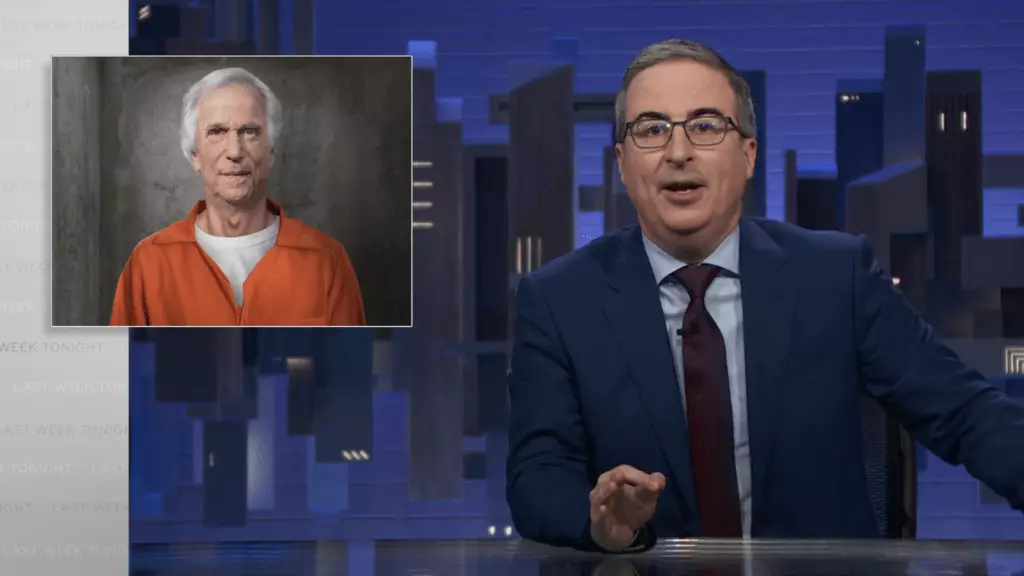In the realm of current affairs, few will contest the prowess of John Oliver when it comes to infusing humor into the strident discussion surrounding immigration laws and policies. His latest episode of Last Week Tonight serves as a poignant critique of the Trump administration’s deportation practices—specifically targeting individuals with criminal records. Oliver’s satirical examination brings to light a disturbing truth: the absurdity and danger that lurk behind these sweeping policies. In this landscape, the mere possession of a minor infraction, such as two speeding tickets and an innocuous citation for exceeding fishing limits, can lead to severe consequences, amplifying fears over the consequential nature of bureaucratic errors.
The comedic reference to Henry Winkler, replete with vividly imagined scenarios of the beloved actor facing deportation, underscores the chilling reality of a system that seemingly operates without accountability. If a commercial figure like Winkler is deemed a target of deportation due to fruitless technicalities, it begs the question: who else is at risk? With each joke, Oliver captures the absurdity of conflating benign acts with criminality, underscoring the precarious balance between humor and the stark realities faced by those entangled in a complex immigration system.
Targeting the Vulnerable: The Consequences of Mass Deportation
This episode sheds light on a critical and grim aspect of immigration policies: the facelessness of the deportation machine. The targeted ethnic groups who find themselves on the receiving end of such policies are coming to be seen not as individuals with distinct stories but rather as mere numbers or statistics in a political game. Oliver’s keen observations suggest that these sweeping deportations are not merely administrative measures; they reflect underlying biases that strip individuals of their humanity. The example of Venezuelan gang members being dispatched to notorious prisons in El Salvador, as touted by the Trump administration, epitomizes a seamless blend of fear-mongering and dehumanization.
Moreover, Oliver’s references to Photoshopped images used to create sensational narratives further elaborate on how misinformation manipulates public perception. Such actions reinforce harmful stereotypes while attempting to justify stringent policies that fail to prioritize humanity. The dangerous precedent set by turning individuals into caricatures of criminality complicates the discourse regarding public safety and national security.
Humor as Resistance: A Call for Empathy
Comedy, particularly in Oliver’s skilled hands, serves as a tool for resistance against an often tumultuous political landscape. However, while the laughter may provide brief relief from the ongoing socio-political nightmares, it also opens a necessary dialogue about empathy and understanding. As viewers find themselves chuckling at the absurdity portrayed, they are simultaneously invited to confront harder truths about their reality. This duality is vital; it delineates the contrast between the humorous surface level and the profound implications lurking beneath.
By engaging audiences through humor, Oliver effectively raises critical questions about morality and ethics in today’s immigration practices. Are we combating criminality, or are we perpetuating cycles of fear that disenfranchise entire communities? It’s a nuanced discussion that deserves more than just a passing joke; it deserves a shared commitment to dismantling the structures that permit such inhumane actions to take place.
In the end, Oliver’s base of hilarity reveals an urgent need for compassion—and it is precisely in this duality of laughter and introspection that the potential for genuine change resides.


Leave a Reply